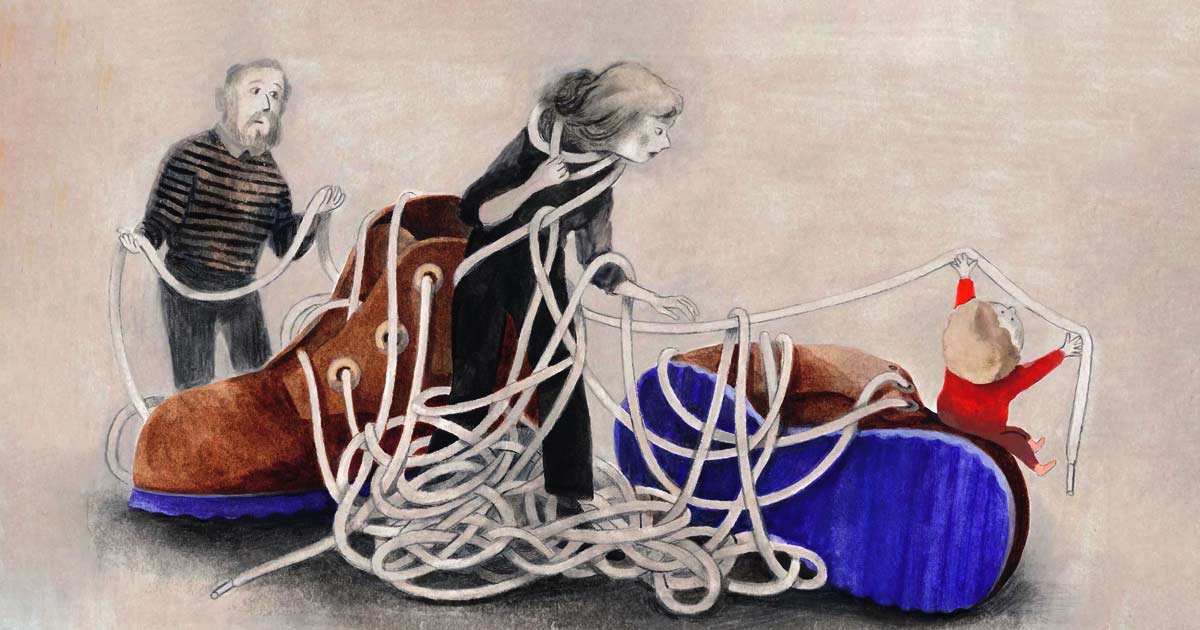You maybe familiar with the traditional model of parenting, where a mom and a dad lead the way. However, recently a growing number of parents have adopted polyamorous parenting as their approach to guiding their kids.
But what is polyamorous parenting and how does it impact children? That’s what we’re going to explore in this article.
We’ll look at what polyamorous parenting is and see how it might make a difference in how children grow up and how they feel. So, let’s dive in and find out more about this parenting approach.
What Is Polyamorous Parenting
Polyamorous parenting is a non-traditional approach to raising children that involves more than two adults sharing the responsibilities of parenting.
In this parenting style, the adults may have romantic and emotional relationships with each other, fostering a sense of openness and inclusivity within the family unit.
The concept challenges the conventional nuclear family structure, emphasizing the importance of love, communication, and mutual respect among all members involved in the parenting process.
While polyamorous parenting may vary in its dynamics and practices, its core values often revolve around building a supportive and nurturing environment for the children.
Read More: Understand What Is Parenting And Discover The Most Important Parenting Skills
How Does Polyamory Affect Children
When it comes to polyamorous families, children can experience a range of effects that shape their understanding of relationships and family dynamics.

Children in families that practice polyamory can be impacted in several ways, such as:
1. Understanding Relationships Better
Growing up in a polyamorous family can help kids see that families can be different, and that’s okay. This might make them more open to different kinds of families when they grow up.
Read More: Understanding What Is Family? Exploring Its Many Forms and The Dream Ideal
2. Having More People to Rely On
With more adults around, children in polyamorous families can get more love and support. Having these extra caregivers can make them feel safer and more cared for, which is good for their feelings.
3. Learning to Deal with Different Situations
Kids in polyamorous families might learn how to handle complicated family stuff, like understanding different relationships between adults. This can help them become better at talking to people and handling different kinds of social situations.
Read More: What Is Child Development? Understanding the 5 Crucial Stages of Child Development
4. Dealing with Challenges
Sometimes, people might not understand or might even say mean things about polyamorous families.
But facing these challenges can make kids stronger and more confident. They learn to believe in themselves and their family, even if others don’t understand.
5. Learning from Different Perspectives
Being in a polyamorous family can expose children to different ways of thinking and living. This can help them become better at understanding different ideas and cultures, which is great for their learning and growth.
Remember, every family is unique, and the way these things affect children can be different for each family. What’s important is that children feel safe, loved, and able to talk about their feelings. This helps them grow up happy and strong.
Read More: How Parents Cause Mental Health Problems In Children
Growing Up With Polyamorous Parents
Growing up with parents who love differently can teach children new things about love and families. They may see that love can be expressed in various ways and that families can look different, which can broaden their understanding of the world around them.
The following are some advantages of growing up with polyamorous parents:
1. Exposure to Diverse Perspectives on Love
Children raised by polyamorous parents may develop a nuanced understanding of love and relationships, witnessing firsthand the emotional intricacies and complexities that can exist within non-traditional family structures.
2. Flexibility and Adaptability
Living in a polyamorous family can foster adaptability and flexibility in children, as they learn to navigate and understand the diverse needs and dynamics of multiple caregivers and relationships.
Read More: How To Become A Godparent: A 9 Tips To Spiritual Mentorship
3. Valuing Emotional Honesty
Children in polyamorous families may grow up in an environment that values open and honest emotional communication, encouraging them to express their feelings and needs freely and fostering a culture of emotional authenticity.
4. Promotion of Autonomy and Independence
Growing up with multiple parental figures can promote a sense of autonomy and independence in children, as they learn to build strong, individual relationships with each caregiver while navigating the complexities of a polyamorous family unit.
Read More: How To Regain Independence In A Relationship? 10 Solutions
5. Development of Inclusivity and Acceptance
Being part of a polyamorous family may instill in children a deep sense of inclusivity and acceptance, as they learn to appreciate and respect diverse family structures and relationship dynamics, fostering a broader perspective on love and human connections.
As children grow, these lessons can shape them into individuals who value honesty, independence, and acceptance in their relationships with others.
Knowing about how does polyamory affect children can broaden your mind towards modern parenting styles!
Read More: What Is A Throuple Relationship And How Does One Work?
Challenges Of Polyamory Families
Polyamorous families, while advocating for diverse and inclusive relationships, encounter a set of unique challenges that require careful navigation and consideration.
These challenges include:
Adoption and Legal Recognition
One of the most significant challenges for polyamorous parents is the legal limitation that typically allows only two parents to be legally recognized.
Negotiating parental rights and ensuring legal recognition for all parents can be a complex process, often requiring extensive legal support and the involvement of all parties.
Co-parenting Agreements
In states where legal recognition for polyamorous families is limited, creating comprehensive co-parenting agreements becomes vital.
These agreements outline the roles and responsibilities of each parent, provide a framework for conflict resolution, and establish contingency plans to address any unforeseen circumstances that may arise.
Read More: What Is Co-Parenting? Expert Mind Talk With Dr. Ann Gold Buscho
Navigating Social Perceptions
Polyamorous families often confront societal misconceptions and prejudices, which can impact their interactions within their communities and extended families.
Coming out as part of a non-traditional family unit remains a deeply personal decision, influenced by various factors such as safety, acceptance, and individual comfort levels.
Day-to-Day Dynamics
Handling everyday challenges, including questions about the stability of non-monogamous relationships and potential effects on children, requires open communication and resilience.
Building a supportive network of like-minded families can offer a sense of belonging and validation for children in polyamorous families.
Despite the challenges, polyamorous families often emphasize the numerous benefits of their chosen family structure, including access to increased resources, diverse parenting roles, and a broader support system for children.
Read More: What Are Family Dynamics? Is Your Family Dynamics Uplifting or Weighing You Down?
A Word From Mind Family
Polyamorous parenting represents a unique and diverse approach to family dynamics, fostering a rich tapestry of love and care. Understanding How does polyamory affect children helps us gain insights into the parenting style.
While facing distinct challenges, these families demonstrate resilience, adaptability, and a commitment to creating nurturing environments for their children. As we continue to embrace the evolving landscape of modern families, it is crucial to cultivate empathy, respect, and acceptance for all types of family structures.
By promoting inclusivity, advocating for legal recognition, and fostering open communication, we can create a more supportive and understanding society for polyamorous families and all those who may choose unconventional paths in parenting.
Let’s celebrate the power of love in all its forms and ensure that every child receives the care, support, and acceptance they deserve.
Frequently Asked Questions (FAQs)
1. What is polyamorous parenting?
Polyamorous parenting involves more than two adults sharing parenting responsibilities, emphasizing love, communication, and mutual respect. It challenges traditional family structures.
2. What are the challenges of polyamory families?
Challenges include legal limitations on adoption and parental recognition, the need for comprehensive co-parenting agreements, societal misconceptions, and daily dynamics that require open communication and resilience.
3. What are the benefits of growing up with polyamorous parents?
Benefits include exposure to diverse perspectives on love, fostering adaptability and emotional honesty, promoting autonomy and independence, and developing inclusivity and acceptance, all contributing to children’s emotional development.
4. How does polyamory affect children?
Polyamory can provide children with a nuanced understanding of different relationships, increased emotional support and role models, enhanced skills in handling complex family situations, resilience in the face of societal stigma, and unique educational opportunities, fostering open-mindedness and empathy.

















Leave a Reply